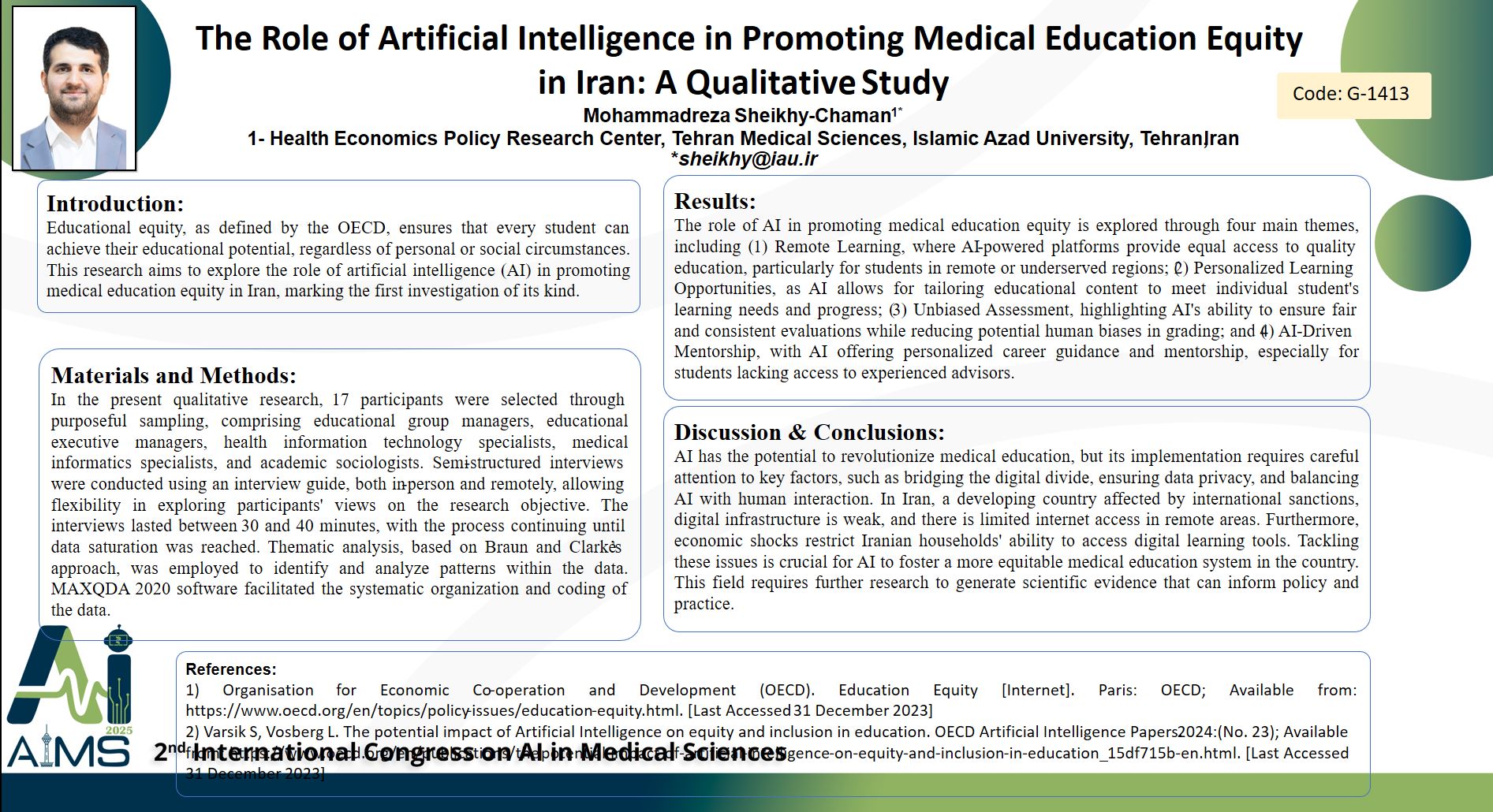نقش هوش مصنوعی در ارتقای عدالت در آموزش پزشکی در ایران: یک مطالعه کیفی
کد: G-1413
نویسندگان: Mohammadreza Sheikhy-Chaman * ℗
زمان بندی: زمان بندی نشده!
برچسب: سیاست گذاری، قانون گذاری و مدیریت سلامت در حوزه هوش مصنوعی
دانلود: دانلود پوستر
خلاصه مقاله:
خلاصه مقاله
Background and Objective: Educational equity, as defined by the OECD, ensures that every student can achieve their educational potential, regardless of personal or social circumstances. This research aims to explore the role of artificial intelligence (AI) in promoting medical education equity in Iran, marking the first investigation of its kind. Materials and Methods: In the present qualitative research, 17 participants were selected through purposeful sampling, comprising educational group managers, educational executive managers, health information technology specialists, medical informatics specialists, and academic sociologists. Semi-structured interviews were conducted using an interview guide, both in-person and remotely, allowing flexibility in exploring participants' views on the research objective. The interviews lasted between 30 and 40 minutes, with the process continuing until data saturation was reached. Thematic analysis, based on Braun and Clarke’s approach, was employed to identify and analyze patterns within the data. MAXQDA 2020 software facilitated the systematic organization and coding of the data. Findings: The role of AI in promoting medical education equity is explored through four main themes, including (1) Remote Learning, where AI-powered platforms provide equal access to quality education, particularly for students in remote or underserved regions; (2) Personalized Learning Opportunities, as AI allows for tailoring educational content to meet individual student's learning needs and progress; (3) Unbiased Assessment, highlighting AI's ability to ensure fair and consistent evaluations while reducing potential human biases in grading; and (4) AI-Driven Mentorship, with AI offering personalized career guidance and mentorship, especially for students lacking access to experienced advisors. Conclusion: AI has the potential to revolutionize medical education, but its implementation requires careful attention to key factors, such as bridging the digital divide, ensuring data privacy, and balancing AI with human interaction. In Iran, a developing country affected by international sanctions, digital infrastructure is weak, and there is limited internet access in remote areas. Furthermore, economic shocks restrict Iranian households' ability to access digital learning tools. Tackling these issues is crucial for AI to foster a more equitable medical education system in the country.
کلمات کلیدی
AI, Medical Education, Equity, Iran
